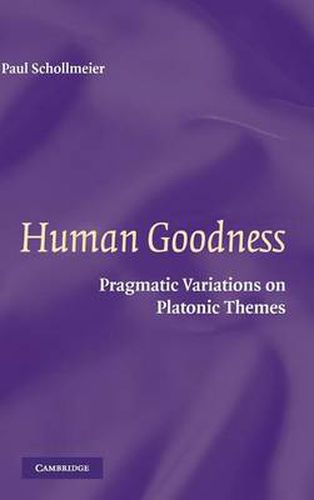Readings Newsletter
Become a Readings Member to make your shopping experience even easier.
Sign in or sign up for free!
You’re not far away from qualifying for FREE standard shipping within Australia
You’ve qualified for FREE standard shipping within Australia
The cart is loading…






Human Goodness presents an original, pragmatic moral theory that successfully revives and revitalizes the classical Greek concept of happiness. It also includes in-depth discussions of our freedoms, our obligations, and our virtues, as well as adroit comparisons with the moral theories of Kant and Hume. Paul Schollmeier explains that the Greeks define happiness as an activity that we may perform for its own sake. Obvious examples might include telling stories, making music, or dancing. He then demonstrates that we may use the pragmatic method to discover and to define innumerable activities of this kind. Schollmeier’s demonstration rests on the modest assumption that our happiness takes not one ideal form, but many empirical forms.
$9.00 standard shipping within Australia
FREE standard shipping within Australia for orders over $100.00
Express & International shipping calculated at checkout
Human Goodness presents an original, pragmatic moral theory that successfully revives and revitalizes the classical Greek concept of happiness. It also includes in-depth discussions of our freedoms, our obligations, and our virtues, as well as adroit comparisons with the moral theories of Kant and Hume. Paul Schollmeier explains that the Greeks define happiness as an activity that we may perform for its own sake. Obvious examples might include telling stories, making music, or dancing. He then demonstrates that we may use the pragmatic method to discover and to define innumerable activities of this kind. Schollmeier’s demonstration rests on the modest assumption that our happiness takes not one ideal form, but many empirical forms.